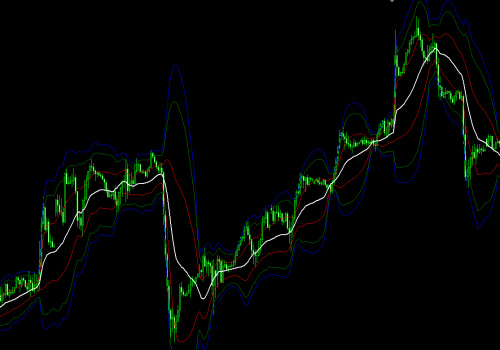Trading can be both rewarding and risky. The key to successful trading lies in mastering trading discipline. Trading discipline is about harnessing your trading psychology and understanding what motivates you to make good decisions. This article will help you understand the importance of trading discipline, and provide you with some tips for building a successful trading strategy. The idea of trading discipline is based on the concept of self-control.
It requires that you analyze the markets objectively, and make decisions that are in line with your goals and risk tolerance. It also involves developing a trading plan and following it consistently. It is important to recognize that trading discipline is an ongoing process – as markets change, so must your strategies. It is essential that you remain disciplined and stick to your plan. In addition to having good trading discipline, it is also important to ensure that you have a sound understanding of the fundamentals of forex trading.
This includes studying technical analysis, understanding market cycles, and learning how to read price charts. Having a thorough understanding of the markets and their movements will help you make more informed decisions when trading. Having a strong trading psychology is essential for successful trading. When it comes to trading discipline, it is important to remember that there are no guarantees – but with the right mindset and strategies, you can increase your chances of success. By focusing on developing a sound trading plan, understanding the markets, and having a positive attitude, you can become a successful trader.
What is Trading Discipline?
Trading discipline is an approach to trading based on a set of principles that guide how you approach the markets.It involves understanding both the psychology of trading and the financial markets. Trading discipline is important because it helps traders stay disciplined and focused on their goals, rather than chasing after every trade opportunity or getting caught up in emotional trading decisions. Having a well-defined trading strategy that outlines your risk parameters and entry/exit points is essential for having a successful trading approach.
Why is Trading Discipline Important?
Trading discipline is important because it helps traders stay focused on their strategies and risk management plans. By having an understanding of the psychology of trading, traders can resist the temptation to make emotional decisions and instead focus on making rational decisions based on their trading strategies.Additionally, trading discipline helps traders maintain their trading capital by ensuring they do not risk too much of it in any single trade.
What Strategies Can I Use to Develop My Trading Discipline?
There are several strategies that traders can use to develop their trading discipline. First, it’s important to have a well-defined trading plan that outlines risk parameters and entry/exit points. Additionally, it’s important to take a break from the markets when emotions are running high. This will allow for some time to step back and assess the situation from an objective point of view.Finally, it’s important to track your results and adjust your strategy accordingly. This will help you stay disciplined and make sure you’re following the same set of principles in each trade.
What Are the Most Common Mistakes Traders Make When It Comes to Trading Discipline?
One of the most common mistakes traders make when it comes to trading discipline is not having well-defined trading plans in place. Without a clear risk management strategy or entry/exit points, traders are more likely to make emotional decisions or take unnecessary risks with their capital. Additionally, some traders may be too aggressive with their trading strategies or take too large positions, which can lead to large losses.What Psychological Tricks Can I Use to Stay Disciplined in My Trading?
One psychological trick that can be used to stay disciplined in your trading is visualization.Before entering a trade, take some time to visualize what you want the outcome of the trade to be. This will help you stay focused on your goals and resist the temptation to take unnecessary risks. Additionally, it can be helpful to set specific goals for yourself each day and reward yourself for achieving them. This will help create an incentive to stay disciplined.
What Tips Can I Use to Stay Disciplined in My Trading?
There are several tips that traders can use to stay disciplined in their trading.First, make sure you have a well-defined trading plan with clear risk parameters and entry/exit points. Additionally, don’t overtrade or take unnecessary risks. It’s also important to take a break when emotions are running high and to track your results so you can adjust your strategy accordingly.
How Can I Maintain My Trading Discipline Over Time?
Maintaining your trading discipline over time requires commitment and consistency. Make sure you review your trading plan regularly and adjust it accordingly if necessary.Additionally, it’s important to track your results and reward yourself when you’re successful. Finally, don’t forget to take regular breaks from the markets when emotions are running high.
Understand What Trading Discipline Is
Trading discipline is a set of mental and emotional habits that successful traders use to maintain a consistent approach to the markets. It requires traders to understand their trading psychology, how to manage risk, and to remain disciplined regardless of market conditions. Trading discipline is important because it helps traders stay focused on their trading plan and avoid getting distracted by external factors or their own emotions.It also helps traders stick to their trading rules and maintain risk management. A good example of trading discipline is Warren Buffett. Despite his success, he has remained disciplined in his approach to investing, focusing on long-term gains rather than short-term opportunities. He has also stuck with his investment strategies over time, even when the market has been volatile or uncertain. Another example of a successful trader who has exhibited trading discipline is George Soros. He has become famous for his ability to remain disciplined and execute his trades with precision, despite the volatile nature of the markets.
He has also been known to use leverage judiciously and stick to his strategies even when the market is not performing as expected. Ultimately, trading discipline is about having the mental strength and emotional control to stay focused on your trading plan. It means understanding your risk tolerance and sticking to your trading rules, even when you are feeling emotional or uncertain. By having a disciplined approach to trading, you can increase your chances of success and maximize your returns over time.
Common Mistakes When It Comes to Trading Discipline
Many traders lack the discipline required to become successful in the financial markets. This is because they don’t understand the importance of having a disciplined approach to trading.Common mistakes that traders make when it comes to trading discipline include:Not Having a Plan: Many traders fail to develop and stick to a plan or trading strategy. Without a plan, traders are likely to make decisions based on emotions and impulses, which can lead to losses. It’s essential for traders to develop a trading plan and stick to it.
Not Following Risk Management Rules:
Risk management rules are essential for successful trading. Traders should determine the amount of capital they are willing to risk on each trade, and never risk more than they can afford to lose.Ignoring risk management rules can lead to reckless trading decisions and significant losses.
Chasing Losses:
After suffering a loss, some traders may be tempted to increase their position size or take on more risk in order to try and make up for their losses. This is a bad idea as it increases the chances of further losses. Instead, traders should take a step back and reassess their trading strategy.Not Taking Time Off:
Many traders think that they need to be constantly monitoring the markets in order to be successful. However, taking time off is essential for avoiding burnout and fatigue.Traders should schedule regular breaks from trading so that they can rest and recharge. By avoiding these common mistakes, traders can greatly improve their chances of achieving success in the financial markets. Taking the time to develop a trading plan, following risk management rules, avoiding chasing losses, and taking regular breaks are all important steps towards developing the right trading discipline.
Strategies for Developing Trading Discipline
Developing trading discipline is essential to achieving consistent returns in the financial markets. Fortunately, there are numerous strategies that traders can use to develop their trading discipline and become better traders. The following are some of the most effective strategies that traders can use to develop their trading discipline.Set Goals and Stick to a Plan:
Having clearly defined goals and a well-thought-out plan is key for developing trading discipline.Goals should be realistic and achievable, and the plan should be tailored to the individual trader's risk appetite and trading style. Once a goal has been set, traders should stick to their plan and not deviate from it. This will help ensure that traders remain disciplined and focused on achieving their goal.
Keep a Trading Journal:
Keeping a trading journal is a great way to track performance and identify patterns or mistakes that can be corrected over time. A journal can also help traders stay on track by reminding them of their goals and reminding them to stick to their plan.Keeping a journal is an effective tool for developing trading discipline.
Use Risk Management Tools:
Risk management tools can be extremely useful in helping traders stay disciplined when trading. These tools can help traders establish rules for when to enter or exit trades, as well as rules for how much capital to risk in any given trade. By following these rules, traders can maintain discipline and stick to their plan even when they are tempted to deviate from it.Learn From Other Traders:
Learning from other successful traders is another great way to develop trading discipline. By studying the trading records of successful traders, you can gain valuable insight into what strategies work and what strategies don't.Additionally, you can learn about the importance of risk management and how successful traders manage their risk. By learning from other successful traders, you can gain valuable insight into the strategies and techniques needed to become a successful trader.
Take Breaks:
Taking regular breaks from trading can be beneficial in helping you stay disciplined. Taking breaks allows traders to step away from their screens and clear their heads so they can come back with a fresh perspective and renewed focus on their trading goals. Taking regular breaks also allows traders to take stock of where they are in relation to their goals and make adjustments as needed.Tips for Maintaining Trading Discipline Over Time
Having the right trading discipline and mental attitude is a key factor in achieving consistent returns in the financial markets.To maintain this discipline over time, successful traders use a variety of strategies to stay on track. Here are some tips on how to maintain trading discipline over time:Set Clear Trading GoalsSet realistic and achievable goals that are specific to your trading style. This will help you stay focused on the long-term plan instead of just looking for quick wins. Make sure your goals are measurable so you can track your progress and adjust if needed.
Create a Trading Plan
A trading plan should include your entry and exit rules, as well as risk management parameters.Having this plan in place will help you stay disciplined when it comes to executing trades. It will also ensure that you are not taking on too much risk or making decisions based on emotion.
Maintain a Positive Attitude
It's important to remember that trading is a marathon, not a sprint. Don't get too caught up in the day-to-day fluctuations of the markets. Focus instead on the long-term plan and stay positive even when things don't go as planned.This will help you stay disciplined and make smart decisions.
Learn from Your Mistakes
No matter how experienced you are, you will make mistakes in the markets. It's important to learn from these mistakes and use them as an opportunity to improve your trading strategy. Focus on what went wrong and how you can avoid making similar mistakes in the future.Seek Professional Advice
If you find yourself struggling with maintaining discipline over time, consider seeking professional advice from a qualified trading mentor or coach. They can provide valuable insight into how to stay disciplined and help you develop a long-term trading plan.Psychological Tricks for Staying Disciplined
Successful traders understand that trading is as much about psychology as it is about understanding the markets.The key to success in trading is having the right mental attitude and trading discipline. To achieve consistent returns, traders must have the discipline to adhere to their trading strategies no matter what the market conditions are. One of the best ways to stay disciplined when trading is to employ psychological tricks to strengthen your resolve. Here are some of the most effective psychological tricks traders can use to stay disciplined:1.Visualize Your Goals:Visualizing your goals can help you stay focused and motivated when trading. Visualizing your goals will help you stay on track and remind you of why you are trading in the first place.
By picturing yourself achieving success, you will be better able to stay disciplined and stick to your strategies.
2.Set Deadlines:
Setting deadlines for yourself can help you stay disciplined when trading. You can set deadlines for yourself such as taking a certain amount of time to research a trade or following a certain trading strategy for a set period of time. By setting deadlines, you will be more likely to stick to your trading plan and not be tempted by other strategies that may seem more appealing.3.Track Your Progress:
Tracking your progress is an important part of staying disciplined as a trader. Keeping track of your wins and losses can help you identify patterns and areas where you can improve.This will enable you to adjust your strategy accordingly and stay disciplined in the long run.
4.Take Breaks:
Taking breaks from trading is essential for staying disciplined. It can be easy to get caught up in the excitement of trading and forget about taking breaks. Taking regular breaks will help you stay focused and keep you from making rash decisions based on emotions.5.Don't Over-Trade:
Finally, it's important to avoid over-trading. This means only taking trades when they meet all of your criteria and not trying to force trades that don't fit your strategy.By avoiding over-trading, you will be able to stay disciplined and not take unnecessary risks. By utilizing these psychological tricks, traders can stay disciplined and achieve consistent returns in the financial markets. Successful traders understand that trading is as much about psychology as it is about understanding the markets, so having the right mental attitude and staying disciplined is essential for achieving success. In conclusion, having a good understanding of trading psychology and using the right strategies and psychological tricks can help you develop a strong trading discipline which will enable you to achieve consistent returns in the financial markets. By following the tips outlined in this article, you will be able to take control of your trading psychology and gain an edge in the financial markets. With a strong trading discipline, you can remain calm and focused on your goals, and be better equipped to make the right decisions when trading.
Additionally, you can use psychological tricks to stay disciplined and maintain trading discipline over time. Overall, trading discipline is an essential skill that successful traders must have to succeed in the financial markets. With the right strategies and knowledge, you can harness your trading psychology for success.












Leave Reply